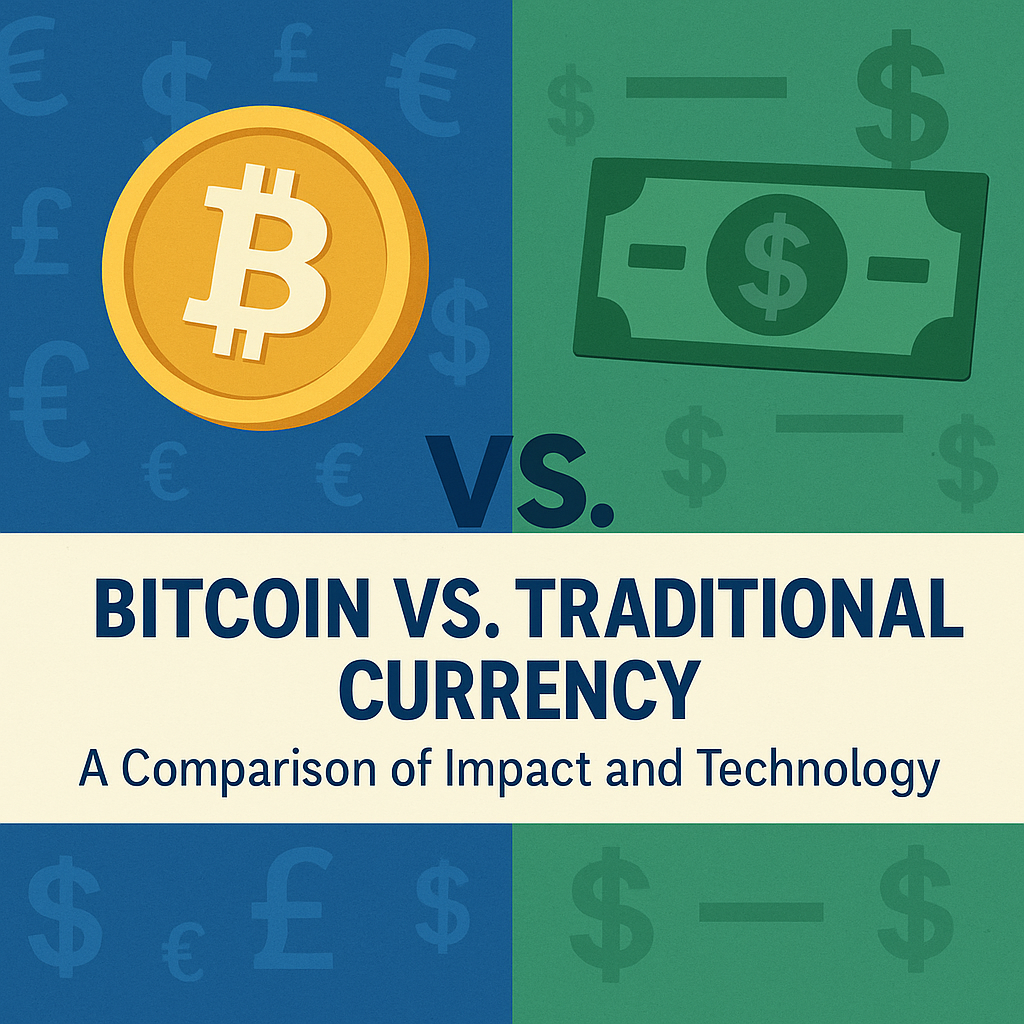
Introduction
The advent of Bitcoin has sparked significant debate regarding its potential implications for traditional currency. This article dives deep into the comparison between Bitcoin and traditional fiat currencies, highlighting their technological foundations, impacts on the economy, and their roles in modern financial systems.
What is Bitcoin?
Definition
Bitcoin is a decentralized digital currency created in 2009 by an anonymous entity known as Satoshi Nakamoto. It operates on a technology called blockchain, which provides transparency and security through a distributed ledger.
Key Features
- Decentralization: Unlike traditional currencies, Bitcoin is not controlled by any central authority.
- Limited Supply: There will only ever be 21 million Bitcoins, making it deflationary by design.
- Anonymity: Transactions do not require personal identification, enhancing privacy for users.
Traditional Currency Overview
Definition
Traditional currencies, also known as fiat currencies, are government-issued and not backed by a physical commodity such as gold. Their value is derived from the trust and confidence of the people who use them.
Key Features
- Centralized Control: Issued and regulated by government authorities.
- Inflation Risk: Central banks can print money, which can lead to inflation.
- Tangible Form: Often exists in physical forms like cash and coins.
Technological Comparison
Bitcoin Technology
- Blockchain: A decentralized ledger ensuring the integrity of transactions. Each transaction is recorded in blocks and linked chronologically.
- Mining: The process of validating transactions and adding them to the blockchain, which requires substantial computational power.
Traditional Currency Technology
- Banking Systems: Rely on centralized databases managed by financial institutions for transaction processing.
- Payment Cards: Technologies like credit and debit cards facilitate traditional transactions while often involving fees.
Economic Impact
Bitcoin’s Influence
- Disruption: Bitcoin has introduced a new paradigm in finance, challenging the existing monetary system and the roles of banks.
- Investment Vehicle: It serves as a store of value and a speculative asset, attracting investors looking for alternatives.
Traditional Currency’s Role
- Stability: Overall, fiat currencies remain stable and predictable, essential for everyday transactions.
- Regulatory Framework: Governments ensure consumer protection and economic stability through regulations.
Related Searches
- Bitcoin advantages and disadvantages
- Future of cryptocurrencies
- How blockchain technology works
- Traditional vs. digital currency
FAQ
Q: Is Bitcoin legal?
A: The legality of Bitcoin varies by country. In some places, it is recognized as an official currency, while in others, it is restricted or banned.
Q: Are Bitcoin transactions reversible?
A: No, Bitcoin transactions are irreversible. Once confirmed, they cannot be undone.
Q: What are the risks of investing in Bitcoin?
A: Risks include market volatility, regulatory changes, and potential for hacks or scams.
Conclusion
Bitcoin represents a revolutionary shift in the financial landscape, contrasting sharply with traditional currency in terms of technology, control, and impact. While Bitcoin offers decentralization and innovative features, traditional currencies provide stability and regulatory oversight. As both continue to evolve, understanding their differences will be crucial for consumers and investors alike.
Interview with a Financial Expert
Interviewer: Can you share your thoughts on the future of Bitcoin compared to traditional currencies?
Expert: Bitcoin certainly has the potential to coexist with traditional currencies; however, widespread adoption depends on regulatory clarity and technological improvements. It may serve as an alternative rather than a complete replacement.
In summary, both Bitcoin and traditional currency have unique characteristics, each playing vital roles in the global economy. Understanding these differences can help individuals make informed financial decisions.
#Bitcoin #Traditional #Currency #Comparison #Impact #Technology

